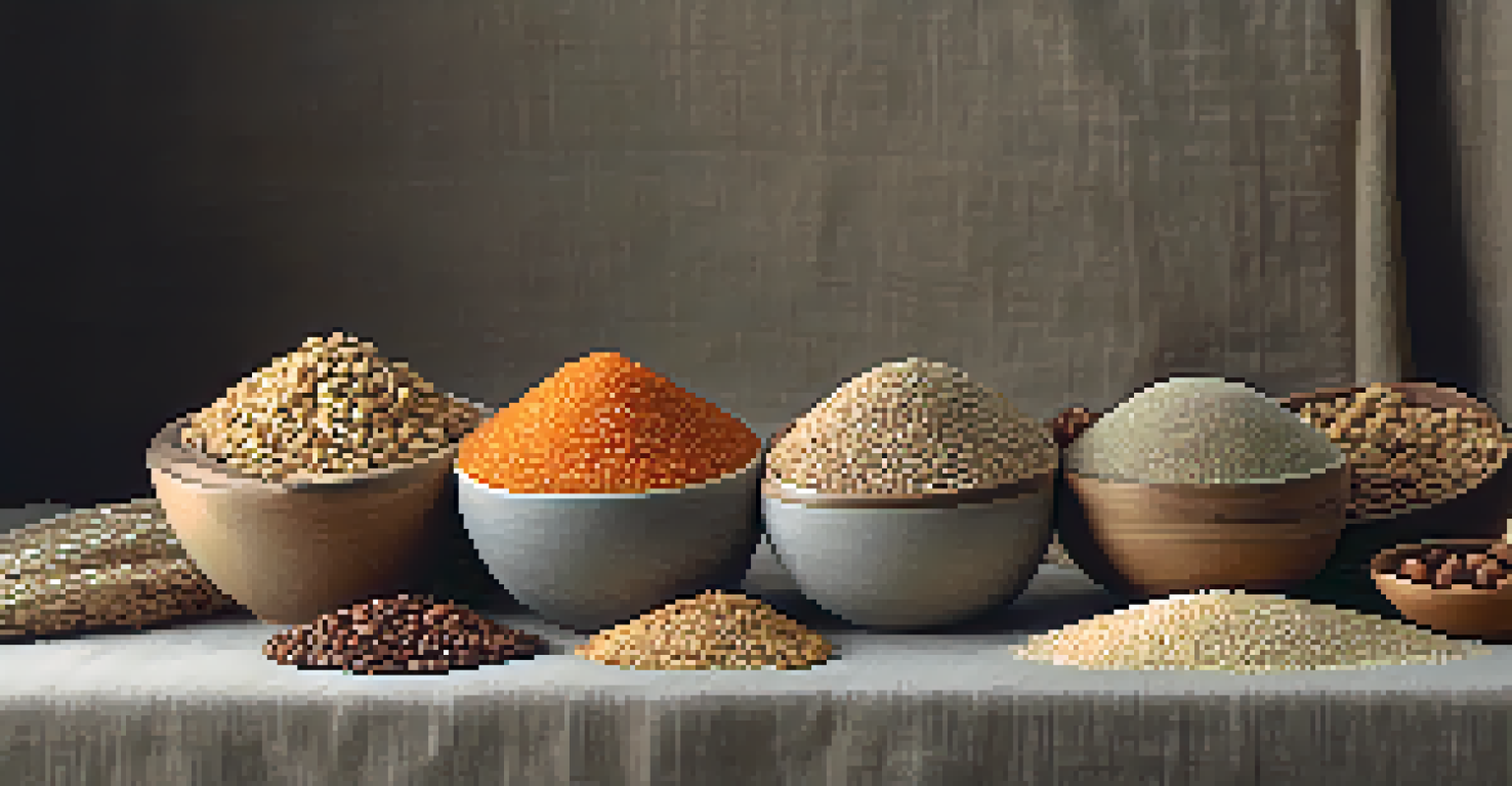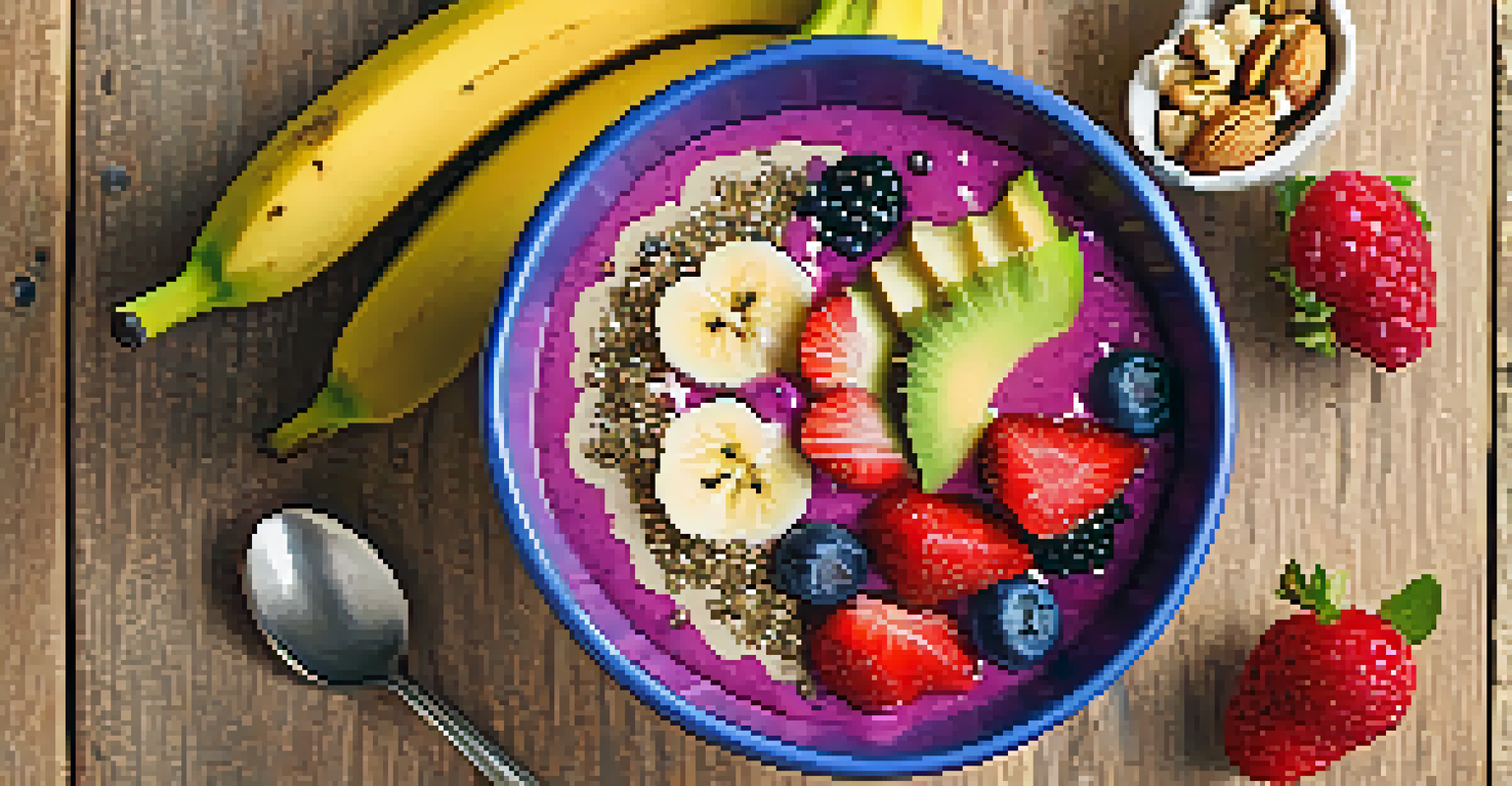Inflammation and Veganism: A Deep Dive into Health Benefits

Understanding Inflammation: The Body's Double-Edged Sword
Inflammation is the body's natural response to injury or infection, acting like a protective shield. However, chronic inflammation can lead to various health issues, such as heart disease and arthritis. It’s essential to distinguish between acute inflammation, which is short-term, and chronic inflammation, which lingers and can be harmful over time. Think of it as a fire: a small fire can be useful for cooking, but a raging inferno can burn down everything in its path.
Let food be thy medicine and medicine be thy food.
The modern diet, often high in processed foods, sugars, and unhealthy fats, can exacerbate chronic inflammation. This is where dietary choices come into play, notably the potential of a vegan diet to combat inflammation. By choosing whole, plant-based foods, individuals can significantly lower their inflammatory markers and promote better health.
Veganism aligns with a lifestyle centered around nutrient-rich foods that are often anti-inflammatory. Foods like fruits, vegetables, nuts, and whole grains provide antioxidants and essential nutrients that help keep inflammation at bay. It's not just about what you eliminate from your diet but also about what you include.
The Vegan Diet: A Closer Look at Its Components
A vegan diet focuses on eliminating all animal products, which can lead to a higher intake of anti-inflammatory foods. Fruits and vegetables are packed with vitamins, minerals, and antioxidants that play a vital role in reducing inflammation. For example, berries, leafy greens, and cruciferous vegetables like broccoli are known for their impressive health benefits, including their ability to fight inflammation.

In addition to fruits and vegetables, legumes and whole grains are staples in a vegan diet. These foods are rich in fiber, which not only helps with digestion but also supports overall gut health. A healthy gut has been linked to lower levels of inflammation, as it plays a crucial role in our immune system.
Inflammation: A Double-Edged Sword
While inflammation is a natural protective response, chronic inflammation can lead to serious health issues.
Healthy fats from sources like avocados, nuts, and seeds are also essential in a vegan diet. These fats contain omega-3 fatty acids, known for their anti-inflammatory properties. Including these foods can create a balanced diet that actively works against inflammation.
The Role of Antioxidants in Fighting Inflammation
Antioxidants are compounds that help neutralize free radicals in the body, which can contribute to inflammation. A variety of colorful fruits and vegetables, found in a vegan diet, are rich in these beneficial antioxidants. Think of antioxidants as the body's defense team, working diligently to prevent damage and maintain health.
Your diet is a bank account. Good food choices are good investments.
For instance, foods like cherries, spinach, and dark chocolate are all high in antioxidants. Incorporating these into your meals not only adds flavor but also bolsters your body’s ability to combat inflammation. It's like adding extra layers of armor to protect against invaders.
Research shows that diets high in antioxidants can lead to reduced levels of inflammatory markers. By embracing a vegan lifestyle, individuals can easily boost their intake of these powerful compounds, making it an effective strategy for managing inflammation.
Omega-3 Fatty Acids: Essential for Inflammation Control
Omega-3 fatty acids are a type of healthy fat that have garnered attention for their anti-inflammatory properties. While they are often associated with fish, there are plenty of vegan sources, such as flaxseeds, chia seeds, and walnuts. Incorporating these foods into your diet is like adding a powerful weapon to your health arsenal.
These fatty acids work by producing anti-inflammatory compounds in the body, aiding in the reduction of chronic inflammation. Research indicates that those who consume higher amounts of omega-3s often experience lower levels of inflammation-related diseases. It's essential to ensure you're getting enough of these beneficial fats through plant-based sources.
Vegan Diet Fights Inflammation
A vegan diet rich in fruits, vegetables, and healthy fats can significantly reduce inflammatory markers.
Including omega-3-rich foods in your daily meals can be simple and delicious. For instance, adding ground flaxseeds to smoothies or salads can boost your omega-3 intake while enhancing flavor. This small change can make a big impact on your overall health.
The Gut Connection: How Veganism Supports Gut Health
The gut plays a crucial role in regulating inflammation in the body, and a vegan diet can significantly support gut health. A diet high in fiber from fruits, vegetables, and whole grains helps promote a healthy microbiome. Think of your gut as a garden; diverse plants grow best when fed nutrient-rich soil.
A healthy microbiome produces beneficial compounds that reduce inflammation and support the immune system. By consuming a variety of plant-based foods, you’re effectively nurturing a diverse and thriving gut ecosystem. This can lead to improved digestion and lower inflammation levels.
Moreover, studies suggest that a vegan diet can reduce the risk of gut-related diseases, which are often linked to inflammation. By prioritizing gut health through veganism, individuals can take proactive steps toward overall wellness.
Practical Tips for Adopting a Vegan Lifestyle
Transitioning to a vegan diet doesn't have to be overwhelming; it can be a fun and rewarding journey. Start by gradually incorporating more plant-based meals into your weekly routine. For instance, try 'Meatless Mondays' or experiment with delicious vegan recipes that excite your palate.
Exploring local markets for fresh produce and trying new ingredients can add variety to your diet. You might discover new favorite foods that not only taste great but also contribute to your health. It's all about finding what works for you and making the process enjoyable.
Gut Health and Inflammation Link
A plant-based diet supports a healthy gut microbiome, which is crucial for regulating inflammation in the body.
Additionally, there are many resources available, from cookbooks to online forums, to help you navigate your vegan journey. Engage with a community of like-minded individuals who can share tips and encouragement. Remember, every small change counts and can lead to significant health benefits.
Potential Challenges and How to Overcome Them
While a vegan diet offers numerous health benefits, it can also present challenges, especially when it comes to ensuring nutritional balance. Key nutrients like protein, vitamin B12, iron, and omega-3s can be harder to obtain from a plant-based diet alone. It's crucial to educate yourself about these nutrients and find suitable vegan sources.
For example, legumes, nuts, and seeds are excellent sources of protein, while fortified foods can provide vitamin B12. Incorporating a variety of foods can help you cover your nutritional bases. Think of it like building a well-rounded toolbox; you need a variety of tools to tackle different tasks effectively.

Lastly, consider consulting with a healthcare professional or a registered dietitian who specializes in vegan nutrition. They can guide you in creating a balanced meal plan that meets your needs and helps you thrive on your vegan journey. Embracing these challenges can lead to a more informed and healthier lifestyle.